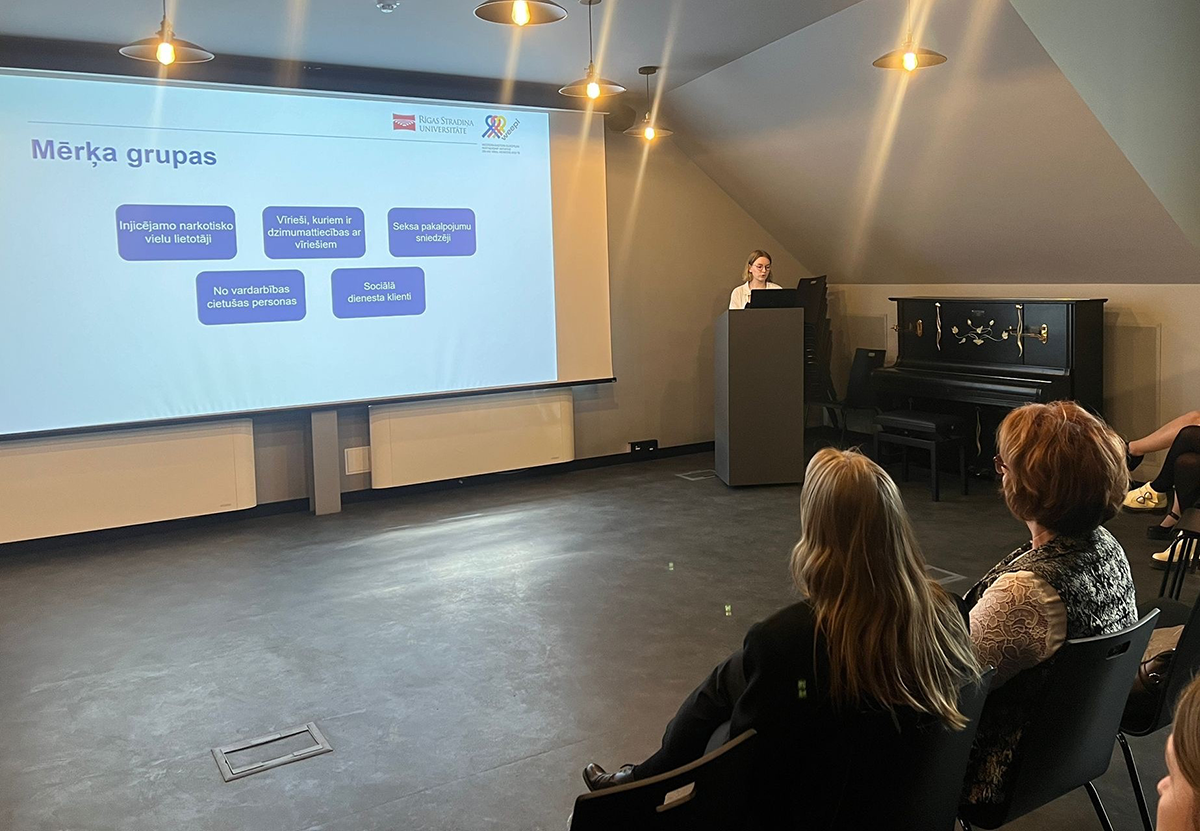Project about HIV self-testing in Latvia has come to an end
The project “Introducing HIV self-testing in Latvia – pilot for key groups”, implemented by the Rīga Stradiņš University (RSU) Institute of Public Health in collaboration with the Baltic HIV Association, came to an end on 31 March this year. The project ran for one year and was funded by the Western-Eastern European Partnership Initiative on HIV, Viral Hepatitis and TB (WEEPI).

The aim of the project was to pilot and evaluate the feasibility and acceptability of HIV self-testing in socially vulnerable populations: intravenous drug users, men who have sex with men, sex workers, survivors of violence, beneficiaries of municipal social services.
In order to ensure the most successful distribution of HIV saliva self-tests to socially vulnerable people, the project actively and successfully cooperated with organisations whose clients include members of the above-mentioned target groups – DIA+LOGS, the MARTA Centre, the State Probation Service, and Riga Social Service.

On 12 April, the final event of the project took place at the RSU Anatomy Museum, where representatives of the partner organisations and the Centre for Disease Prevention and Control presented the results and lessons learned from the project.
About a third of the participants were testing for HIV for the first time in their lives and only a quarter were previously aware of saliva self-testing as a method of HIV testing. HIV saliva self-testing is a painless, at-home method that uses saliva as the test material. The results can be obtained within 20 minutes and the test can detect the presence of HIV in the body about three months after possible exposure to the virus. Most participants found the self-test convenient, easy to understand, and acceptable. HIV self-testing as a method of detecting HIV has support in high-risk groups.
According to the study, the most convenient method of obtaining a self-test would be to buy it from a pharmacy.
Most participants said they would be willing to pay up to five euros for an HIV self-test. It should be noted that in Latvia, the price of an HIV blood self-test in an online pharmacy costs around 38 EUR, while saliva self-tests are not available at all. In Lithuania and Estonia, HIV blood self-tests are also priced quite high, ranging from 21 to 30 EUR.
HIV tests can also be carried out in a laboratory with or without a doctor’s referral (at your own expense) by drawing blood. For example, it costs 4 EUR at E. Gulbja Laboratorija and 6.30 EUR at the Central Laboratory. HIV testing is free and anonymous at HIV prevention points throughout Latvia.
This price comparison shows that HIV self-testing is expensive and inaccessible to a large part of the population. However, according to the results of the study, the home-based HIV saliva self-test is the preferred method of HIV testing that the study’s participants would like to use in the future. The participating partner organisations believe that HIV self-testing should continue to be offered to their clients in the future.
The HIV and AIDS surveillance report published by the European Centre for Disease Prevention and Control indicates that, in 2022, the number of newly registered HIV cases in Latvia will be 12.2 per 100,000 inhabitants, more than twice the European Union and European Economic Area average (5.1 per 100,000 inhabitants). About 30% of HIV cases in Latvia remain undiagnosed. It is therefore essential to promote HIV testing among the population, including by finding new, innovative, and publicly accessible testing strategies.
The project team would like to thank everyone who has contributed to the project and to HIV prevention. To quote one of the project partners, "We can do it together!"
Related news
 At the beginning of December, training on the use of SHARE data in research took placeSHARE, Public Health
At the beginning of December, training on the use of SHARE data in research took placeSHARE, Public Health


